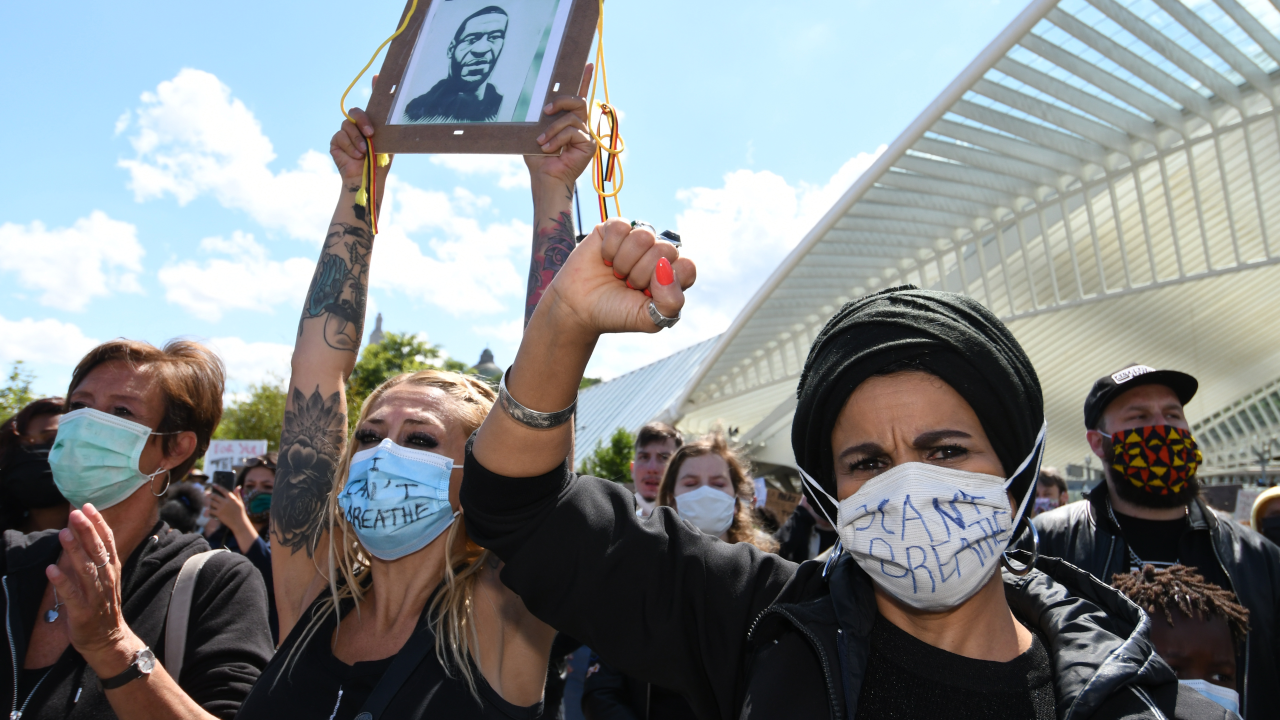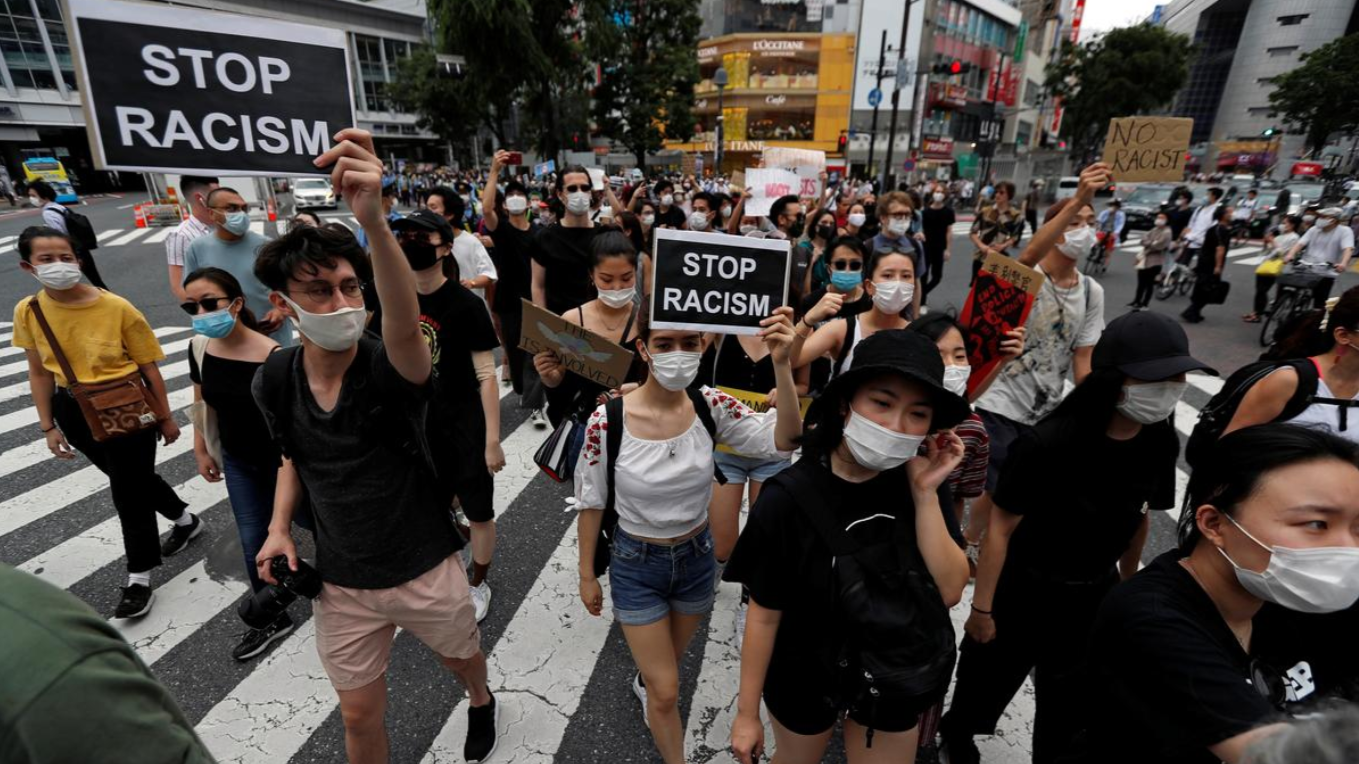
Editor's note: Chris Hawke is a graduate of the Columbia University Graduate School of Journalism and a journalist who has reported for over two decades from Beijing, New York, the United Nations, Tokyo, Bangkok, Islamabad and Kabul for AP, UPI and CBS. The article reflects the author's opinions and not necessarily the views of CGTN.
Aria and Michelle are both horrified by the death of George Floyd. They both agree that Black people are treated unfairly, and something needs to be done about it.
Aria decides she will react by double checking her actions to make sure she is not racist.
When dealing with people of different races, Aria makes sure to be friendly, and never acts in a cruel or unfair way. She always tries to be a good person, and treats other people in a way that is color blind. She has always been that way.
Michelle decides to become an "anti-racist." That's some who takes an active role in learning about, spotting, and doing something about inequities and disparities that give one racial group advantages over another.
Aria never asks herself why everyone in her neighborhood has the same color skin as her, but knows she personally has never discouraged anyone from moving in.
Michelle acknowledges that she is glad the people in her neighborhood all look like her. She hates to admit it, but she feels safer. And she recognizes that she worked hard to get her child into a "good school."
Michelle asks herself why it is that "good schools" tend to have be majority white, and starts to ask herself questions about why schools are funded by local property taxes, and why economic opportunities are so unequal in different parts of town.
One night Michelle and Aria get lost while walking through an unfamiliar neighborhood, and they see a young Black man walking down the street. Michelle, deciding to put her safety first, wants to turn away. But Aria, feeling the same fear, makes a different decision. She approaches the young man and asks for directions. He is going the same way, and walks them to their destination.
Aria has decided she is not racist, and therefore never asked herself why she feared this young man. Michelle, on the other hand, has decided that she is going to walk toward her biases, and encounter them head-on, even if they make her feel uncomfortable.
Aria and Michelle arrive at a cafe and meet some colleagues. One of them makes a racial remark. Aria doesn't like it, but decides not to speak up, because they all have to work together. In addition, she thinks trying to change the mind of bigots is hopeless. She just tries to focus on her own behavior.
Michelle on the other hand calls out the coworker. Several days later, the coworker tells her she was right, and he won't speak in that way in the future.

People wearing masks hold placards during an anti-racism protest in Tokyo, Japan, June 6, 2020. /Reuters
People wearing masks hold placards during an anti-racism protest in Tokyo, Japan, June 6, 2020. /Reuters
When people start talking about white privilege or systemic racism, Aria gets annoyed. After all, she has not acted in a racist manner. Why is she being blamed? She works hard for what she has, and was not born with a silver spoon in her mouth.
Michelle listens. She learns that biologists say there is no such thing as race from a biological point of view. Rather, it is a sociological construct, invented and refined by colonialists to justify their actions. She learns how those in power have used race to keep people divided against each other.
Michelle makes an active effort to expand her social circles, even though at times she feels awkward. She starts attending events at libraries and museums that had nothing to do with race, but attract people from a wide variety of backgrounds. She makes a point of checking out events in neighborhoods she doesn't usually go to, or at embassies or cultural centers.
Some of her favorites are celebrations of holidays from other cultures, such as the Thai water throwing festival or the Chinese New Year.
Slowly, Michelle starts making acquaintances with people from different backgrounds, based on common interests and shared experiences. Some of these people will eventually become friends. She believes strong personal ties across groups with different backgrounds challenge our biases and strengthen our communities.
This all took a fair bit of effort on Michelle's part, but she believes if we are not actively opposing racism, we are helping perpetuate it.
Aria is a little bit jealous of Michelle's social life, but does not have time to take part in sports leagues or hobby groups. And Aria is comfortable with her church, and doesn't see a reason to try out others that have more diverse congregations.
Besides, Aria doesn't see any reason to put in all the effort that Michelle has. After all, racism is not her problem.
Think you are not a racist? Nobody thinks they are racist.
Ibram X Kendi has generated conversations across the U.S. by arguing in his bestselling book that the opposite of a racist is an anti-racist, and being "not racist" isn't good enough to change things.
The idea has been widely embraced, but also met with skepticism and even scorn, including from Black critics.
One thing is for sure, as long as everybody feels like racism is someone else's problem, racial problems will continue to fester.
(If you want to contribute and have specific expertise, please contact us at opinions@cgtn.com.)